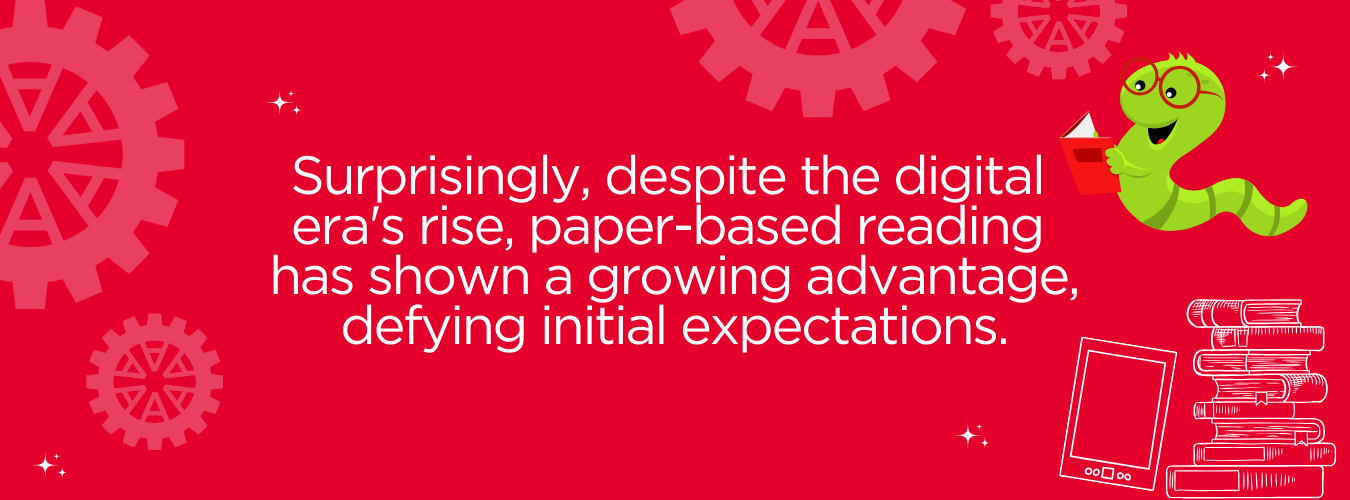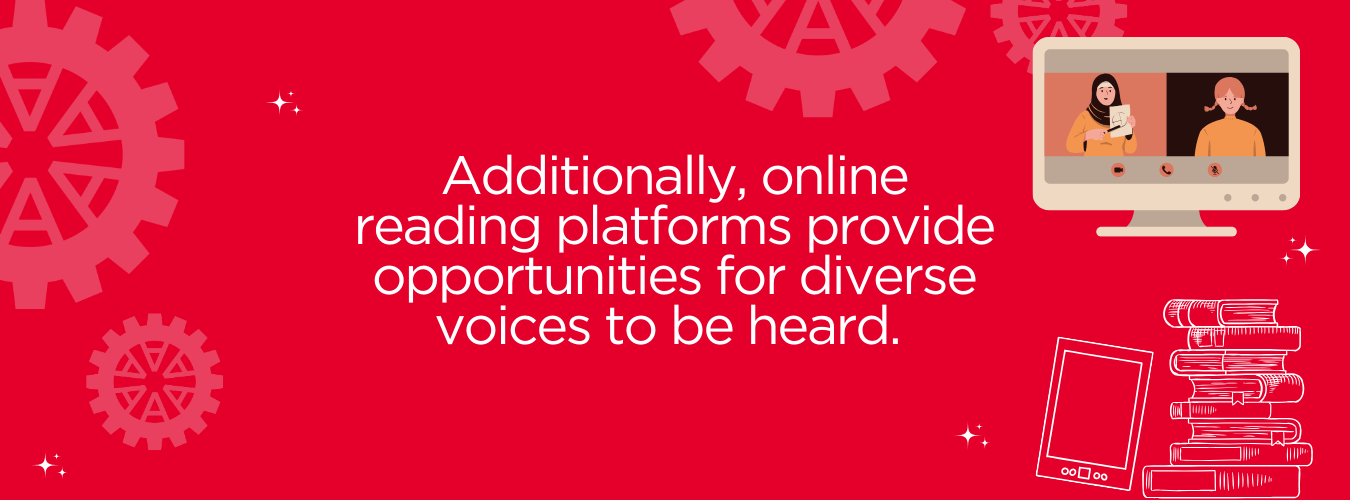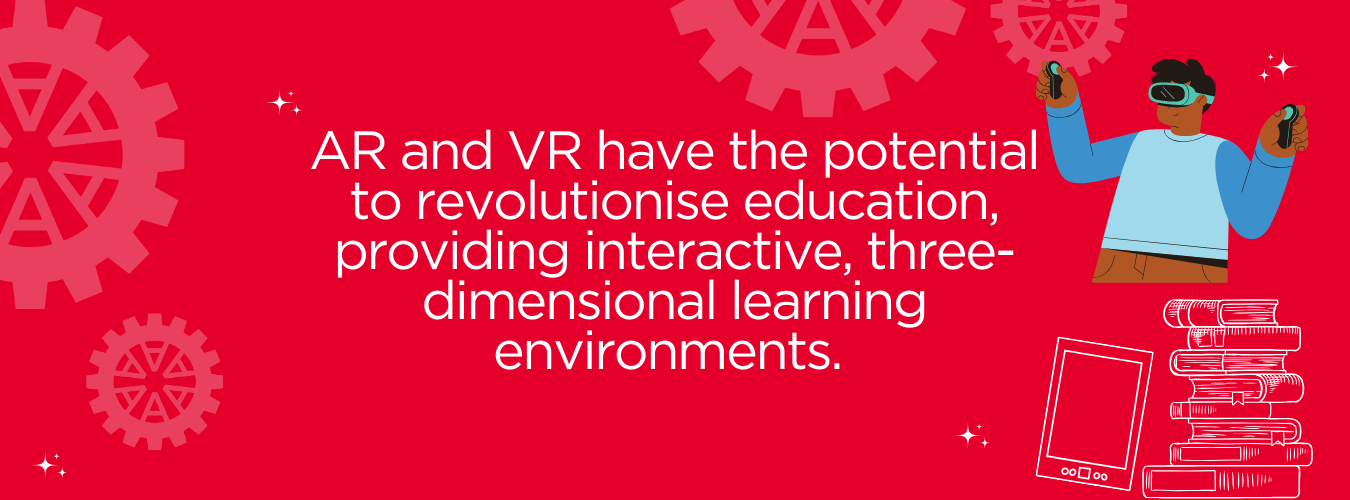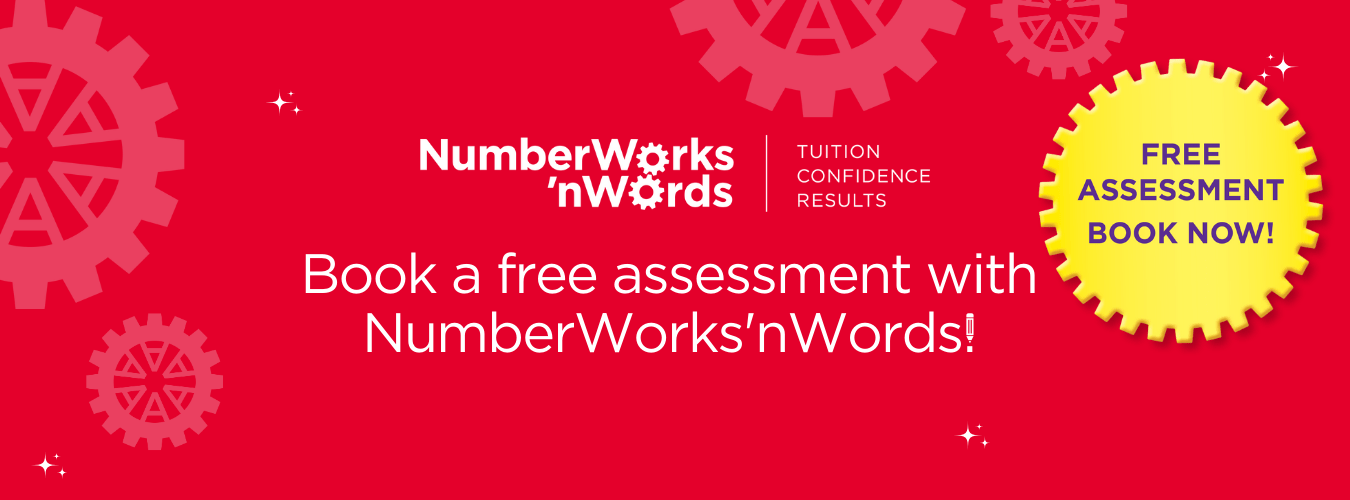Navigating the Digital Reading Landscape: Embracing the Evolution

The digital era has brought about a profound transformation in our reading habits, sparking a captivating debate between aficionados of printed books and enthusiastic online readers.
In this blog post, we delve into the ongoing discourse of reading books versus reading online, exploring topics such as reading comprehension, digital literacy, learning techniques, cognitive advantages, accessibility, and forthcoming innovations. We aim to equip you with insights to support your child's thriving reading journey in this digital age.
Is your child struggling to keep up with schoolwork? Are they falling behind? Are they bored in class? Or are you looking for extension work for your child? Check out our eBook to learn more about how we help your child improve academically and build confidence through our in-centre after-school tuition.
As online reading continues to surge, researchers, educators, and parents worldwide are delving into the nuanced distinctions between reading in print and online formats. Although initial research yielded inconclusive results, the relentless evolution of technology has progressively blurred the boundaries between these mediums.
E-readers like Kindles have garnered a devoted following, owing to their lightweight convenience and cost-effectiveness. However, staunch traditionalists argue that the tangible pleasure of flipping through the pages of a physical book is unparalleled. As education increasingly relies on digital resources, concerns have emerged about potential declines in reading proficiency, especially for longer texts.
Reading Comprehension
Research has illuminated several factors influencing reading comprehension, revealing that the length of the text is crucial, often favouring print due to its immersive nature.
Furthermore, the type of material and the allocated reading time significantly affect comprehension. Despite the digital era's rise, paper-based reading has surprisingly shown an increasing advantage, contrary to initial expectations.
Recent studies comparing print books with digital platforms like Kindle have uncovered subtle differences. While basic recall tests showed minimal variation, print readers excelled in spatial and sequential recall of events in linear narratives. This superiority is linked to the tactile aspects of print, such as page-turning, and the mental placeholders created, aiding in deep reading.
Nevertheless, technology's evolution has narrowed the gap between print and digital reading experiences. E-readers now replicate the tactile sensations of print, offering features like bookmarking and page-turning.
Furthermore, multimedia integration in digital platforms enhances the reading experience, accommodating diverse learning styles. Interactive elements, audiovisual content, and hyperlinks provide depth, making complex subjects accessible and enjoyable, especially in educational contexts.

Literacy and Learning Strategies
In the ongoing debate over print versus online reading, a vital consideration is the cultivation of digital literacy skills. In today's technology-driven world, proficiency in navigating digital platforms, discerning credible information from online sources, and understanding various multimedia formats has become essential.
Educational institutions are adapting their curricula to include digital literacy education, enabling students to critically assess online content. Mastering efficient use of search engines, fact-checking information, and critically analysing online articles are pivotal abilities that bridge the gap between traditional reading and the digital realm.
By honing these skills, readers can interact with a broader array of content while maintaining a discerning perspective, ensuring a well-rounded and informed reading experience.

Digital Reading and Cognitive Benefits
In addition to the ongoing debate about formats, it is crucial to explore the cognitive benefits of digital reading. Research indicates that digital reading can enhance critical thinking skills and improve information retention.
Interactive features in e-books, such as clickable footnotes and multimedia annotations, encourage active engagement, stimulating the reader's mind. Furthermore, online platforms often cultivate a sense of community through forums and discussion threads, enabling readers to share perspectives and participate in intellectual discussions.
These interactive elements not only enrich the reading experience but also promote cognitive development, encouraging readers to think critically, challenge assumptions, and analyse diverse viewpoints. As digital reading continues to evolve, understanding its cognitive impacts is essential, providing valuable insights into how technology shapes our intellectual capacities and cognitive processes.
Cultural Preservation and Accessible Reading
Digital platforms have played a significant role in preserving and providing access to cultural heritage and literature. Libraries and museums worldwide are digitising rare manuscripts, historical documents, and artworks, making them available to a global audience. Digital archives ensure the preservation of fragile, ancient texts for future generations, promoting cultural exchange and understanding.
Furthermore, online reading platforms create avenues for diverse voices to be heard. Authors from marginalised communities can publish their work digitally, reaching a broader readership and breaking down barriers in the literary world. This democratisation of literature fosters inclusivity, allowing readers to explore perspectives and stories they might not encounter in traditional print media.

Future Innovations and Augmented Reading Experiences
Looking ahead, technological advancements promise thrilling innovations in the realm of reading. Augmented reality (AR) and virtual reality (VR) applications are being developed to create immersive reading experiences. Just imagine delving into a historical novel and virtually stepping into its setting or exploring complex scientific concepts through interactive simulations.
AR and VR hold the potential to transform education, offering interactive, three-dimensional learning environments. Additionally, artificial intelligence (AI) algorithms are being utilised to personalise reading recommendations, tailor reading lists to individual preferences and nurture a deeper connection with literature.

As these innovations unfold, the line between print and online reading will further blur, providing readers with unparalleled opportunities for exploration, education, and entertainment in the digital age.
In this ever-evolving landscape, readers stand to benefit from a multitude of formats, each offering unique advantages. Embracing the digital reading revolution means not only adapting to change but also welcoming a future where literature, knowledge, and cultural experiences are more accessible and diverse than ever before.
In light of the evolving relationship between print and online reading, our individualised tutoring approach at NumberWorks’nWords serves as a guiding beacon for young learners. We understand the importance of adapting to the digital age while fostering a deep appreciation for traditional literary forms.
To learn more about our tutoring programs tailored to meet the needs of each child, book a free assessment or contact your local centre.




